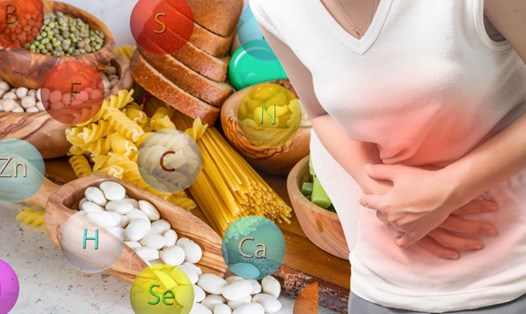According to Abhilasha V, Nutritionist, Cloudnine Group of Hospitals, Bengaluru, India, an inability to digest lactose (the sugar found in milk), can lead to symptoms such as bloating, diarrhea, and abdominal pain when consuming dairy products. Since dairy products are a source of calcium, vitamin D, and other essential nutrients for children, parents and caregivers need to find alternative ways to meet their child’s nutritional needs without causing discomfort. Here is a guide on how to ensure adequate nutrition for children with lactose intolerance.
Calcium-Rich Alternatives
Calcium is important for the health, growth and development of children's bones. Since milk is the main source of calcium, children who are lactose intolerant need alternative sources to ensure adequate calcium intake.
- Fortified plant milks: Many plant-based milk alternatives like almond milk, soy milk, and oat milk are fortified with calcium and vitamin D, making them great alternatives to regular milk.
- Green leafy vegetables: Dark green leafy vegetables like kale, collard greens, spinach and collard greens are rich in calcium.
- Calcium-fortified foods: Some juices, cereals, and breads may be fortified with calcium.
Sources of vitamin D
Vitamin D is essential for calcium absorption and bone health. Many children get their vitamin D from fortified dairy products, but for children who are lactose intolerant, alternatives are needed.
- Sunlight: Encourage children to spend time outdoors in sunlight, which helps the body synthesize vitamin D naturally.
- Fatty fish: Salmon, mackerel and sardines are rich in vitamin D and can be added to your child's diet, as long as he or she is not allergic to fish.
- Vitamin D supplementation: If dietary sources of vitamin D are inadequate, supplementation may be necessary. Consult your pediatrician to determine the appropriate dosage.
Protein alternatives
While dairy products are a good source of protein, there are many other sources of protein available to children who are lactose intolerant.
- Plant-based protein sources: Beans, lentils, chickpeas, quinoa, and soy products like tofu and tempeh are rich in protein.
- Meat, poultry and fish: Lean meat, chicken, turkey, eggs and fish provide high-quality protein. These foods can be included in your child's diet in appropriate amounts depending on your child's age and nutritional needs.
- Nuts and seeds: In addition to providing calcium, nuts and seeds such as almonds, sunflower seeds and flaxseeds also provide protein.








